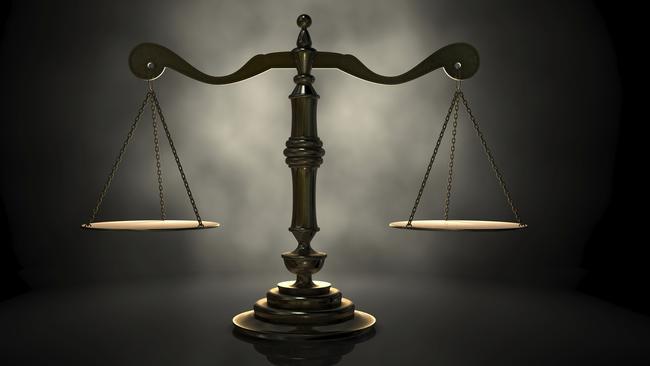‘Emotional management, diversity’ key to selecting judges: handbook
Cultural awareness and diversity will be key considerations in selecting Australian judges while the traditional view of ‘merit’ will be reassessed after the first criteria revamp in a decade.

Cultural awareness and diversity will be key considerations in selecting Australian judges, while the traditional view of “merit” will be reassessed, following the first revamp of criteria for appointing judicial candidates in nearly a decade.
The updated handbook, released by the Australasian Institute of Judicial Administration this month, was created to be used as a tool for governments and courts in elevating lawyers to the bench, and includes an exhaustive list of the “desired qualities” of judges in all jurisdictions.
Critical attributes such as diversity are showcased in the updated booklet, which says that “good judging requires a high degree of cultural awareness” and asserts that a varied judiciary is important for both “reducing the risk of biased or ill-informed judgments” and boosting the public’s faith in the justice system.
Federal Circuit and Family Court judge Murray Aldridge wrote in his foreword to the handbook had been “greatly enhanced” by the changes.
The leading jurist said the booklet includes “new content and expert commentary on the judicial appointment process, including approaches to possible criteria such as potential character impediments, diversity and merit, decision-making abilities, communication, emotion and emotion management, and leadership”.
The handbook puts a new emphasis on the “interpersonal abilities” of potential judges, and states an appointee’s ability to manage their demeanour are also important to consider.
A candidate should “be aware of and thoughtfully manage their own emotion and the feelings of others, consistent with the judicial role; balance confidence and humility; be willing to seek assistance and support when experiencing difficulties, especially with stress or trauma”.
Successful judicial appointees will also “speak calmly, courteously, and patiently, even when necessary to be forceful”. They will “listen attentively, ask clear, concise, relevant and understandable questions … (and) understand social media and use it appropriately”.
“Judicial communication skills, including listening, are identified as part of a wide range of interactive and interpersonal abilities. These qualities are critical to effective court management and central to court users’ perceptions of legitimacy of judicial authority,” the handbook says.
“Such abilities and conduct are also important for judicial officers as part of a respectful well-functioning workplace.”
The changes to judicial appointments come amid a nationwide push to modernise the judicial system, including an Australian Law Reform Commission review into the handling of sexual assault cases, which will investigate frameworks about evidence, court processes and jury directions, and laws about consent.
The judiciary is also facing questions over whether artificial intelligence will supersede the discretion of judges, with Australian courtrooms already using automation to optimise efficiency and untangle complex legislation.
Diversity is now included as a cornerstone of the appointments handbook, researched by Flinders University emeritus professor Kathy Mack, stating that a diverse judiciary “promotes public confidence in, and supports the legitimacy of, the courts and their decisions”.
“A diverse judiciary will have broader perspectives available to decision-makers, potentially reducing the risk of biased or ill-informed judgments,” the guidelines read.
“It may also elicit greater respect and trust from the public, and especially from those who have been excluded in the past. A judiciary that reflects the diversity of Australian society along key dimensions serves an important symbolic function.
Where “non-traditional or under-represented attributes are or appear to be a factor in judicial appointment”, the handbook says that does not mean that the person appointed lacks the merit needed to be a judge.
“The crucial issue is not a purported tension between diversity and merit, but how merit is constructed, conceptualised and assessed. Merit has often been assumed from a limited range of professional experiences. This has produced a judiciary lacking diversity and with some judicial officers sometimes lacking the qualities and skills needed for good judging.”
While some “may perceive a non-traditional appointment as an implied threat to judicial impartiality”, the handbook says these objections “do not recognise that all judicial officers, whatever their identity and whether regarded as diverse or traditional, bring with them a background and life experiences which shape their views and conduct as judicial officers”.
“This does not mean that judicial decisions are personal and unconstrained. They are governed by a commitment to the rule of law and to the central value of impartiality,” the handbook reads. “Impartiality is a quality all judicial officers strive to achieve, using several considered strategies. It is not a fixed state, nor is it uniquely possessed by those with the personal and social characteristics that have traditionally dominated the judiciary.”
The handbook was made with the intention of assisting governments and courts, but intentionally does not go into the procedural details of appointments in order to avoid interference with the separation of powers. “The purpose of judicial appointment criteria and processes is to identify and appoint people who will be good judges, recognising that there are many ways to be a good judge, and that merit comes in many forms,” the handbook reads.
“These criteria articulate core values, skills, and abilities necessary for good judging, in light of the varied expectations judicial officers must meet.
“They are relatively detailed in identifying qualities and competencies needed for judicial work.”







To join the conversation, please log in. Don't have an account? Register
Join the conversation, you are commenting as Logout